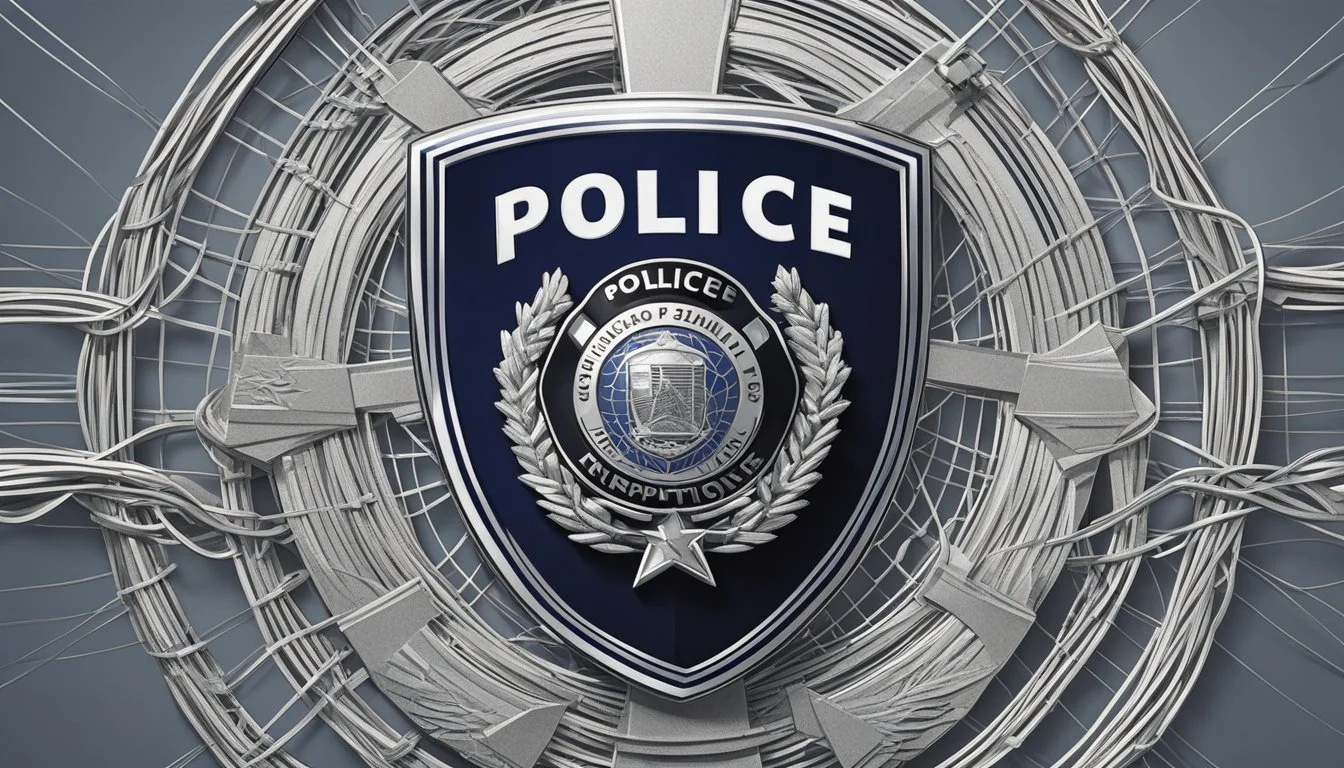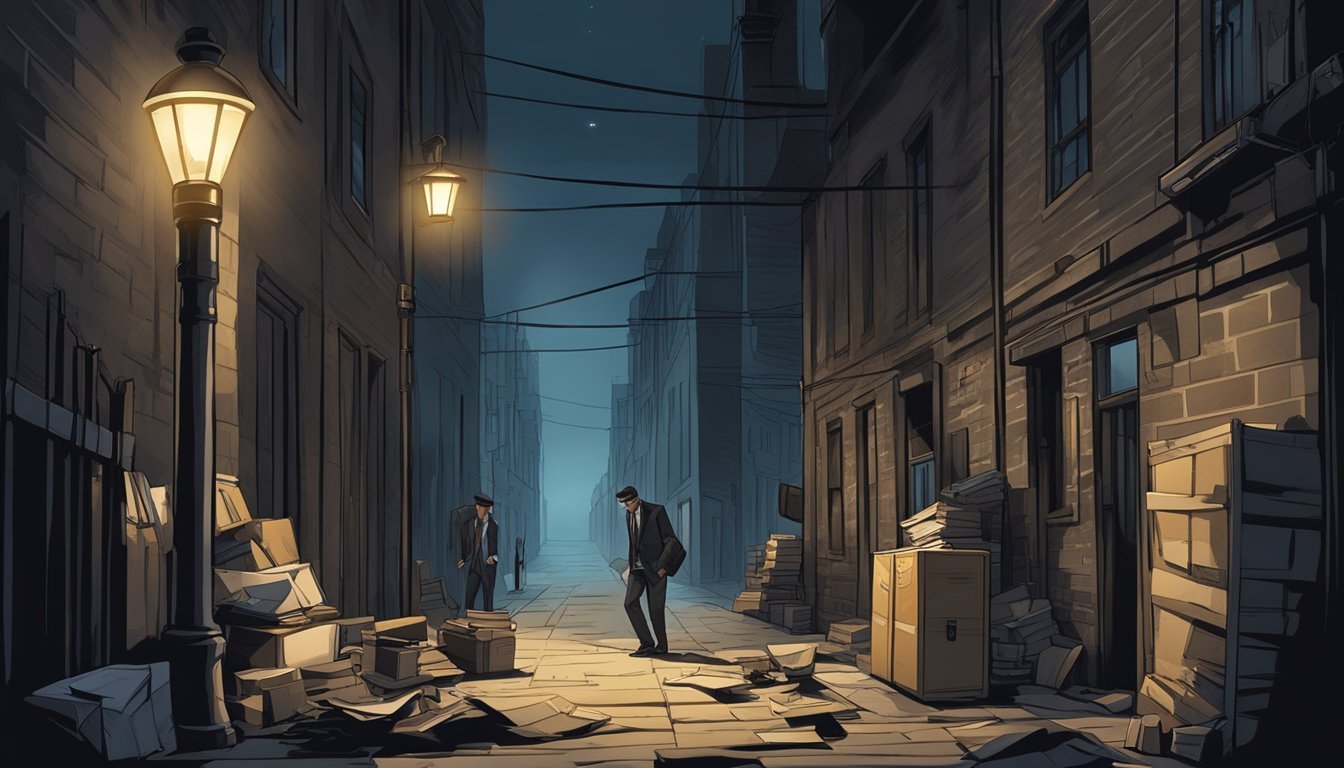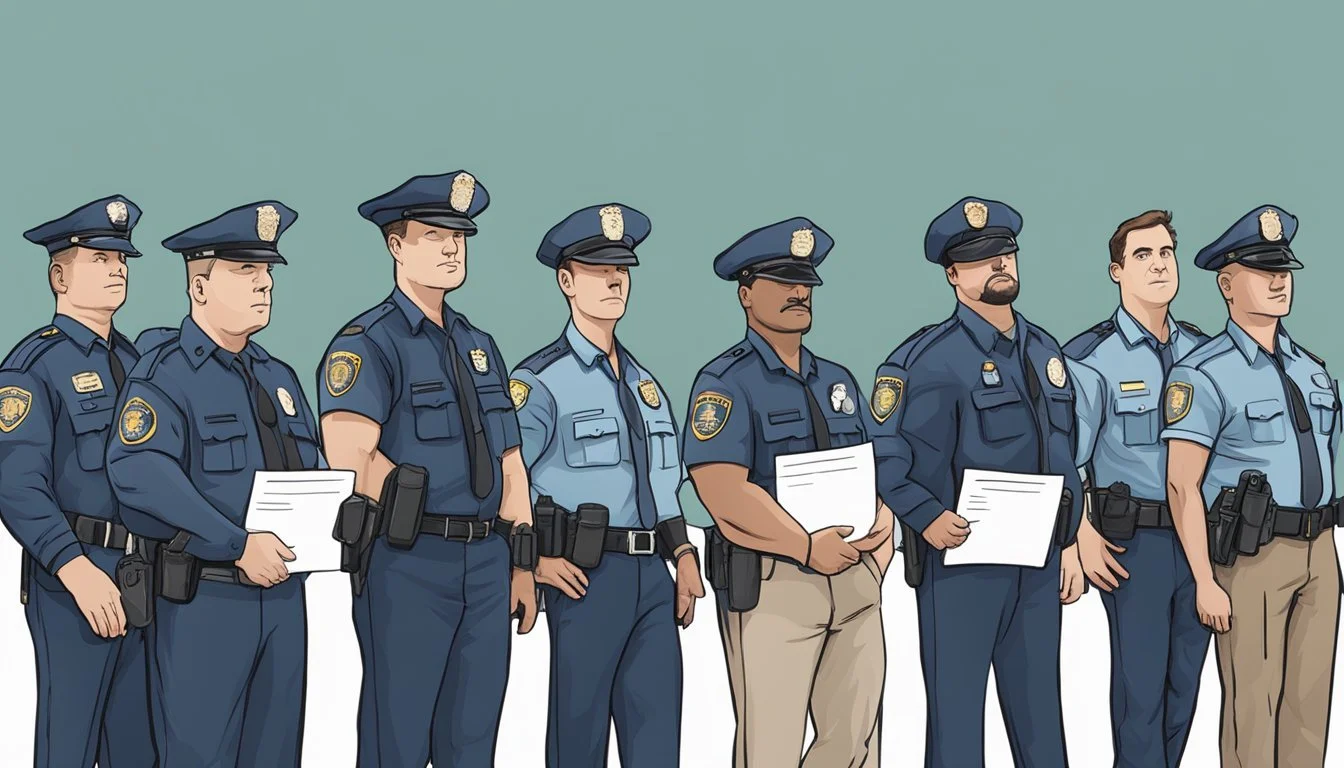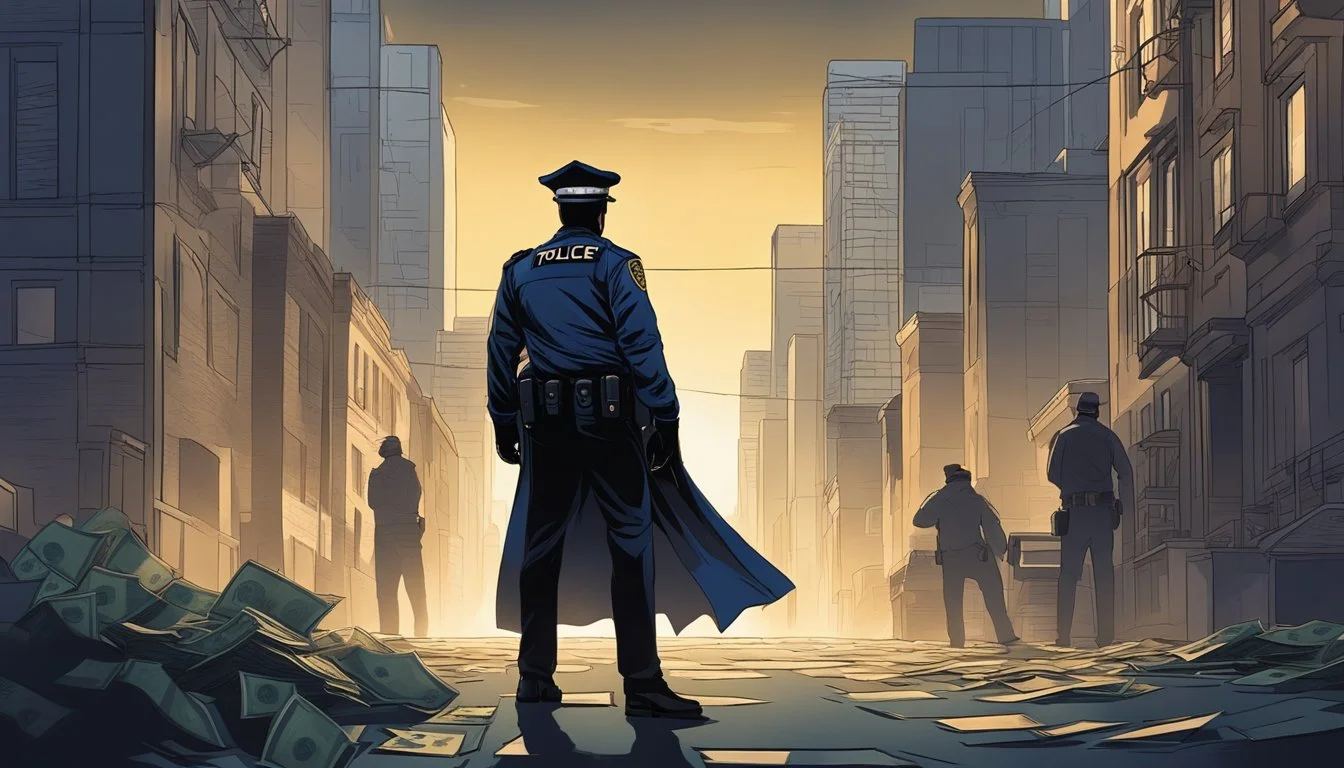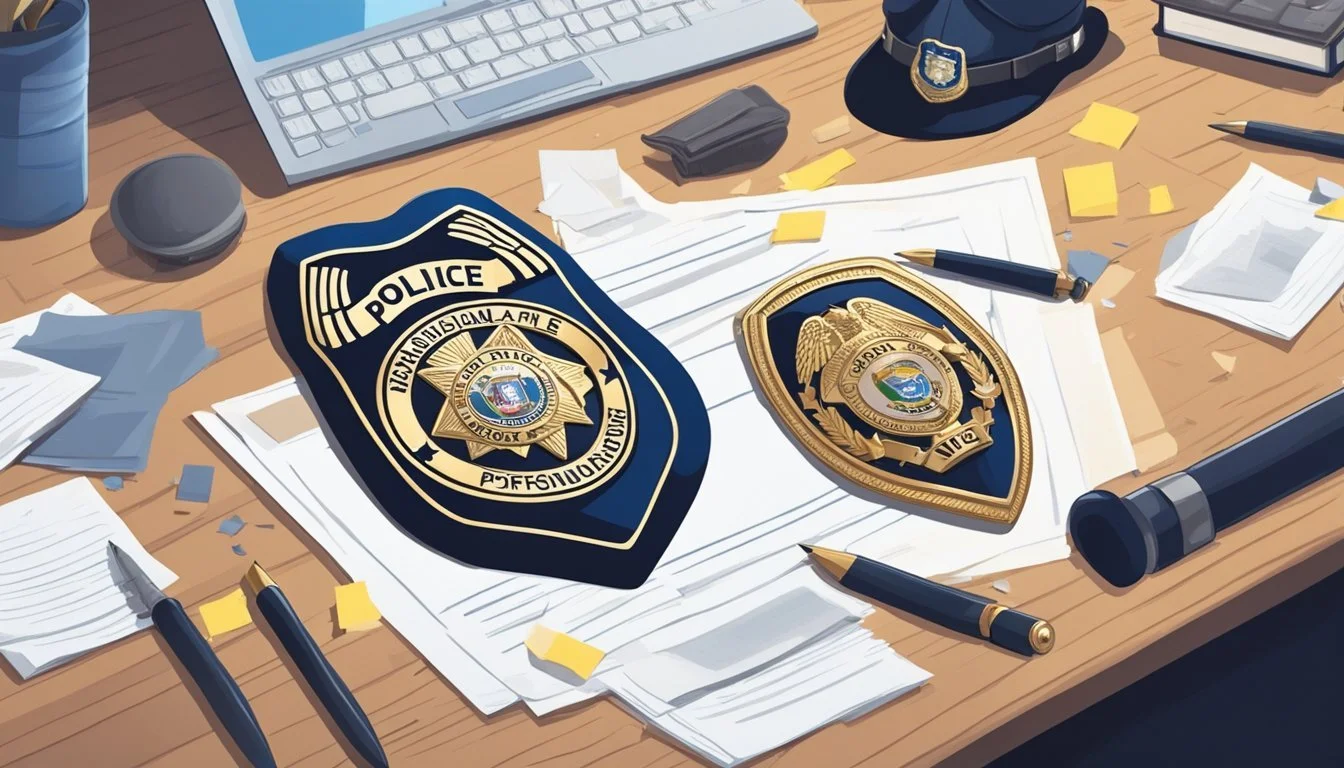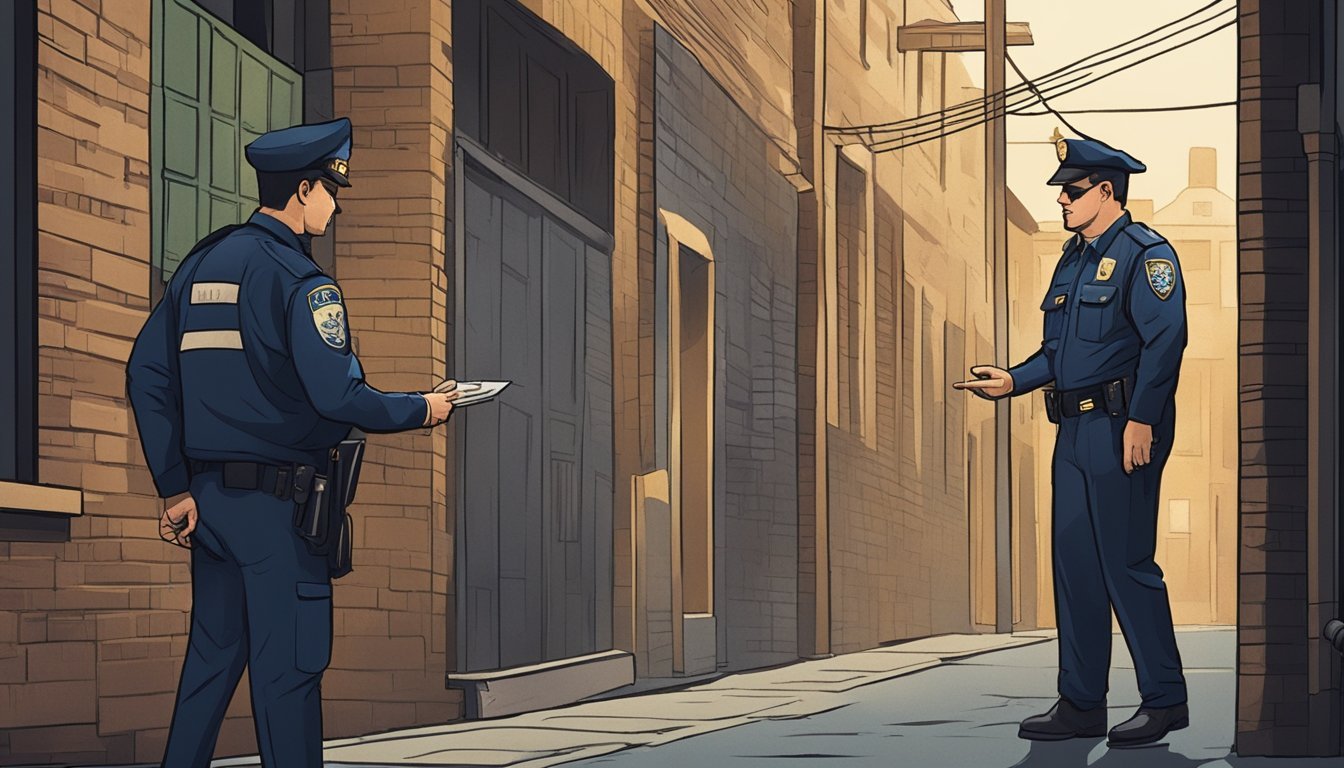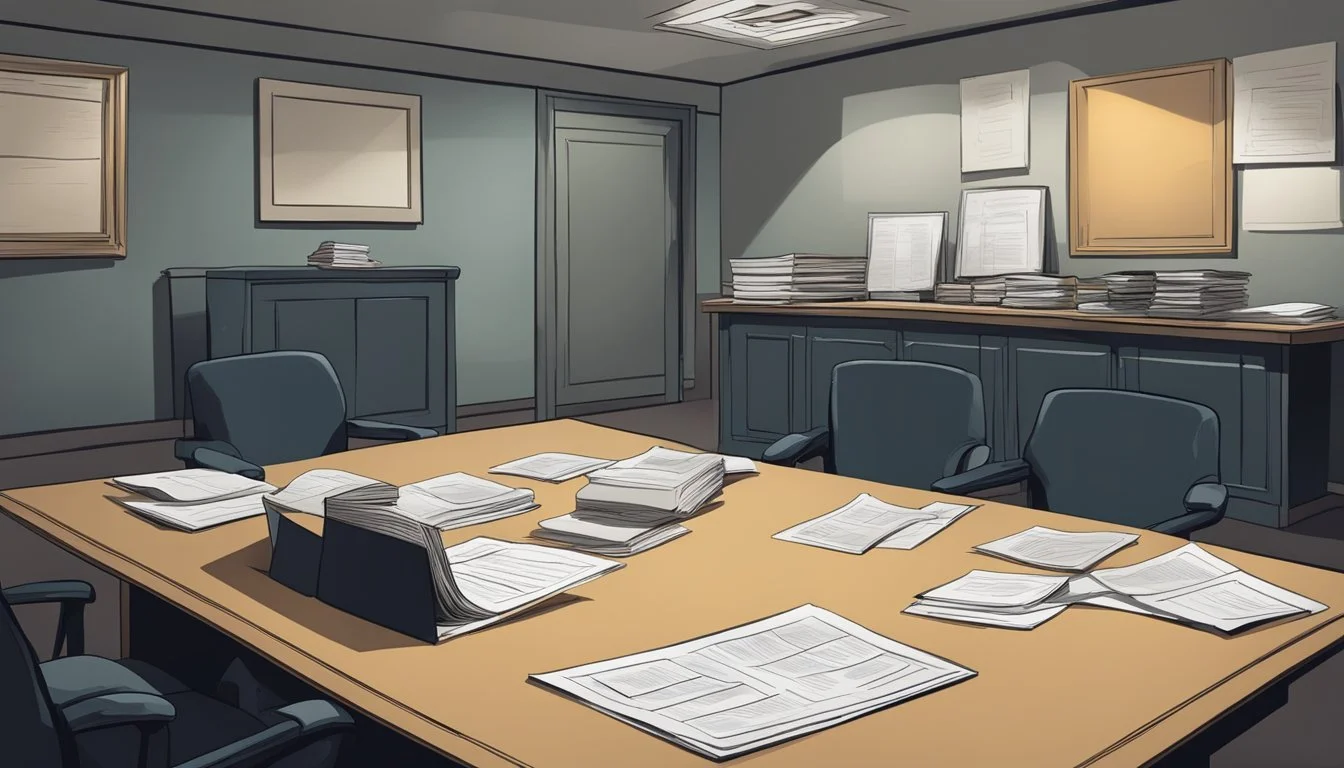11 Compelling Documentaries on High-Profile Police Corruption Cases
Exposing Law Enforcement Misconduct
Police corruption cases have long captivated public attention, revealing the dark underbelly of law enforcement institutions. Documentaries exploring these high-profile incidents offer viewers an in-depth look at the systemic issues plaguing police departments across the nation.
These films expose abuse of power, cover-ups, and criminal misconduct within police forces, shedding light on the urgent need for reform and accountability. Through interviews, archival footage, and expert analysis, they provide a comprehensive examination of corruption cases that have eroded public trust in law enforcement. Viewers gain insight into the complex factors contributing to police misconduct and its far-reaching consequences for communities and individuals alike.
1) The Seven Five
"The Seven Five" is a 2014 documentary that exposes police corruption in Brooklyn's 75th precinct during the 1980s. The film focuses on Michael Dowd, a former NYPD officer who became deeply involved in criminal activities.
Dowd and his partner Ken Eurell engaged in a range of illegal acts, including accepting bribes, selling drugs, and robbing dealers. Their actions occurred during the height of the crack cocaine epidemic, which created opportunities for unethical officers to profit.
The documentary combines interviews, archival footage, and reenactments to tell the story of Dowd's descent into criminality. It provides insight into how some officers transformed from law enforcers to lawbreakers.
The film also covers the Mollen Commission, which investigated police corruption in New York City. Dowd and Eurell's testimony before the commission helped expose the extent of misconduct within the NYPD.
"The Seven Five" offers a compelling look at a dark chapter in law enforcement history. It raises important questions about police integrity and the challenges of maintaining ethical standards in high-crime environments.
2) The Force
"The Force" offers a revealing look inside the Oakland Police Department during a turbulent period of reform efforts. Directed by Peter Nicks, this documentary captures the department's struggle to address federal demands for change and improve community relations.
The film focuses on Chief Sean Whent, who was brought in to lead reform initiatives. It examines the challenges faced by the department as they attempt to overcome a history of misconduct and civil rights violations.
Set against the backdrop of the Black Lives Matter movement, "The Force" explores the complexities of implementing meaningful change in law enforcement. The documentary provides an unfiltered view of the department's internal workings and decision-making processes.
Nicks employs a vérité style, allowing viewers to witness firsthand the tensions and difficulties faced by officers and administrators. The film presents a nuanced portrayal of the issues plaguing the Oakland Police Department and the broader challenges in American policing.
"The Force" received critical acclaim, winning the Documentary Directing Award at the 2017 Sundance Film Festival. It serves as a thought-provoking examination of the obstacles to police reform and the impact of public scrutiny on law enforcement agencies.
3) Serpico
Frank Serpico gained fame as a whistleblower who exposed widespread corruption within the New York Police Department in the early 1970s. His story became the subject of a compelling documentary that delves into the real-life events behind the famous Hollywood film.
The documentary explores Serpico's journey as an idealistic officer who refused to participate in the systemic bribery and illegal activities prevalent among his colleagues. It details his efforts to report these corrupt practices to his superiors and the subsequent retaliation he faced.
Viewers learn about the fateful incident where Serpico was shot during a drug bust, with suspicions that his fellow officers deliberately failed to provide backup. The film also covers his testimony before the Knapp Commission, which investigated police corruption.
Through interviews with Serpico himself and others involved in the case, the documentary offers a firsthand account of the challenges faced by those who speak out against corruption within law enforcement. It highlights the personal toll of Serpico's actions and the lasting impact of his whistleblowing on police reform efforts.
4) Blue Code of Silence
"Blue Code of Silence" is a documentary that explores the story of Bob Leuci, a former NYPD detective who became an informant against his own corrupt police unit in the 1970s. The film delves into the complex world of police corruption in New York City during that era.
Directed by Magnus Skatvold and Greg Mallozzi, the documentary examines Leuci's role in exposing the corruption within the NYPD's most corrupt unit. It showcases how his actions led to significant changes in the department.
The film presents Leuci's perspective on the events that unfolded, offering insights into his decision to turn informant. It also explores the consequences he faced, including being labeled as the NYPD's biggest "rat."
"Blue Code of Silence" features interviews with various individuals connected to the case, including prosecutors and other law enforcement officials. These interviews provide additional context and perspectives on the corruption scandal.
The documentary highlights the ethical dilemmas faced by police officers and the challenges of breaking the so-called "blue wall of silence." It offers a thought-provoking look at the complexities of law enforcement and the importance of accountability within police departments.
5) Precinct Seven Five
"The Seven Five" documents one of the most notorious police corruption scandals in New York City history. The film focuses on Michael Dowd, a former NYPD officer who worked in Brooklyn's 75th precinct during the 1980s and early 1990s.
Dowd's criminal activities included stealing money, dealing drugs, and protecting drug dealers. The documentary features candid interviews with Dowd himself, offering a firsthand account of his descent into corruption.
The film explores how Dowd recruited other officers into his criminal network, creating a culture of corruption within the precinct. It highlights the challenges faced by honest officers working alongside corrupt colleagues.
"The Seven Five" provides insight into the broader issues of police corruption and the difficulties in maintaining integrity within law enforcement. The documentary uses archival footage and interviews with former officers and prosecutors to paint a comprehensive picture of the scandal.
The film's narrative spans from Dowd's early days as a rookie cop to his eventual arrest and conviction. It sheds light on the internal affairs investigation that ultimately brought down Dowd and his associates.
6) Triple Chaser
"Triple Chaser" is a documentary that examines the controversial use of tear gas in law enforcement. The film focuses on the Safariland Group, a major manufacturer of tear gas and other weapons used by police forces worldwide.
The documentary explores the ethical implications of tear gas production and its deployment against civilians. It highlights instances where tear gas has been used to suppress protests and civil unrest in various countries.
"Triple Chaser" takes its name from a specific type of tear gas grenade produced by Safariland. The film investigates the company's global reach and its connections to political figures and law enforcement agencies.
The documentary raises questions about the militarization of police forces and the human rights concerns associated with tear gas use. It presents interviews with activists, medical professionals, and individuals affected by tear gas exposure.
"Triple Chaser" provides viewers with a critical look at the tear gas industry and its impact on civil liberties. The film encourages audiences to consider the broader implications of police tactics and crowd control methods.
7) Whose Streets?
"Whose Streets?" is a powerful documentary that examines the aftermath of Michael Brown's killing in Ferguson, Missouri in 2014. The film offers a raw, unfiltered look at the protests and civil unrest that followed the shooting of the unarmed teenager by police officer Darren Wilson.
Directors Sabaah Folayan and Damon Davis focus on the perspectives of local activists and community members. They capture the anger, grief, and determination of Ferguson residents as they demand justice and challenge systemic racism in law enforcement.
The documentary highlights the emergence of the Black Lives Matter movement and showcases grassroots organizing efforts. It features intimate footage of protests, confrontations with police, and community meetings.
"Whose Streets?" provides a counter-narrative to mainstream media coverage of the events in Ferguson. It emphasizes the experiences of those directly affected by police violence and racial inequality.
The film premiered at the 2017 Sundance Film Festival and received critical acclaim for its unflinching portrayal of civil unrest and community activism. It serves as a vital historical document of a pivotal moment in the ongoing struggle for racial justice in America.
8) Dirty Wars
"Dirty Wars" is a gripping documentary that delves into covert U.S. military operations. Directed by Richard Rowley and based on Jeremy Scahill's investigative work, the film exposes secretive actions conducted by Joint Special Operations Command (JSOC).
The documentary follows Scahill as he uncovers clandestine missions in Afghanistan, Yemen, and Somalia. It sheds light on night raids, drone strikes, and other controversial tactics employed in the War on Terror.
Scahill's investigation reveals the expansion of covert operations and their impact on civilian populations. The film raises questions about the legality and ethics of these hidden military activities.
"Dirty Wars" combines on-the-ground reporting with interviews of military insiders and affected families. It offers a rare glimpse into the shadowy world of modern warfare and its consequences.
The documentary received critical acclaim for its investigative journalism and compelling narrative. It was nominated for an Academy Award for Best Documentary Feature in 2014.
9) The Black Panthers: Vanguard of the Revolution
Stanley Nelson's documentary explores the rise and fall of the Black Panther Party. Founded in 1966 by Huey Newton and Bobby Seale, the organization positioned itself at the forefront of revolutionary change in America.
The film weaves together rare archival footage with firsthand accounts from former Panthers, police officers, and FBI agents. It provides a comprehensive look at the party's history and impact on civil rights.
Nelson's work examines the Panthers' community programs and their confrontations with law enforcement. The documentary highlights the group's appeal as well as the controversies that surrounded it.
The film covers the formation of the Black Panther Party for Self-Defense and its rapid growth across the United States. It delves into the group's ten-point program and their efforts to address issues facing African American communities.
"The Black Panthers: Vanguard of the Revolution" offers insight into the complex legacy of an organization that challenged police brutality and systemic racism. It presents a nuanced portrayal of a movement that captured national attention during a turbulent era in American history.
10) 13th
Ava DuVernay's documentary "13th" examines the intersection of race, justice, and mass incarceration in the United States. Released in 2016, the film takes its title from the 13th Amendment to the U.S. Constitution, which abolished slavery except as punishment for a crime.
The documentary explores how this loophole has been exploited to perpetuate racial inequality through the criminal justice system. DuVernay presents a compelling narrative that traces the evolution of racial oppression from slavery to Jim Crow laws to the modern era of mass incarceration.
"13th" features interviews with activists, scholars, and politicians, providing diverse perspectives on the issue. The film analyzes how political rhetoric, media representation, and economic interests have contributed to the disproportionate incarceration of African Americans.
DuVernay's work sheds light on the profit motives behind private prisons and the impact of mandatory minimum sentencing laws. The documentary also examines the role of police practices in maintaining this system, including racial profiling and aggressive enforcement tactics.
11) Crime + Punishment
"Crime + Punishment" is a 2018 documentary directed by Stephen Maing that exposes illegal quota practices within the New York City Police Department. The film follows a group of brave NYPD officers known as the NYPD12, who risk their careers to reveal the truth about these practices.
The documentary centers on the experiences of these whistleblowers, including Officer Edwin Raymond, as they challenge the department's policies. It showcases their struggles and successes in their fight against corruption.
One of the main storylines focuses on Officer Pedro Hernandez, whose case highlights the human impact of these quota practices. The film provides a compelling look at how these policies affect both police officers and the communities they serve.
"Crime + Punishment" combines personal narratives with broader insights into systemic issues within law enforcement. It explores the complex relationships between police departments and the public they are meant to protect.
The documentary received critical acclaim for its powerful portrayal of police corruption and the officers who stand up against it. It offers viewers a nuanced perspective on the challenges facing modern policing in America.
Historical Context of Police Corruption
Police corruption has a long and complex history in the United States, with roots tracing back to the early days of law enforcement. Numerous high-profile cases have shaped public perception and eroded trust in police institutions over time.
Notable Cases Throughout History
The 1920s saw rampant corruption during Prohibition, with many officers accepting bribes to ignore illegal alcohol sales. In 1950s Los Angeles, the "Bloody Christmas" incident exposed widespread police brutality. The 1970s Knapp Commission investigated systemic NYPD corruption, revealing officers involved in drug dealing and protection rackets.
More recently, the Rampart scandal rocked the LAPD in the late 1990s. Officers were found planting evidence, stealing drugs, and even bank robbery. In 2015, Baltimore's Gun Trace Task Force scandal uncovered officers stealing money and drugs from citizens.
These cases highlight how police corruption has evolved yet persisted across different eras and departments.
Impact on Public Trust
High-profile corruption cases have significantly damaged public faith in law enforcement. A 2020 Gallup poll found only 48% of Americans trust the police, down from 64% in 2004.
Decreased trust leads to reduced cooperation with police and lower crime reporting. This creates a cycle where effective policing becomes more challenging. Communities of color are often disproportionately impacted, furthering racial tensions.
Body cameras and civilian oversight boards have been implemented to improve accountability. However, rebuilding trust remains an ongoing challenge for police departments nationwide. Transparency and consistent disciplinary action for misconduct are crucial steps moving forward.
Legal and Ethical Implications
Documentaries on police corruption cases often highlight complex legal and ethical issues. These films raise questions about the proper use of authority and the consequences of its abuse.
Many cases featured in these documentaries involve illegal actions by officers, including evidence tampering, perjury, and excessive force. These behaviors not only violate laws but also breach the public trust placed in law enforcement.
Ethical considerations extend beyond individual officers to entire departments and systems. Documentaries may expose institutional failures, inadequate oversight, and cultures that enable or cover up misconduct.
The films can impact ongoing legal proceedings. They may influence public opinion, potentially affecting jury pools or pressuring authorities to take action. This raises ethical questions about the role of media in the justice system.
Documentaries also explore the legal challenges of prosecuting corrupt officers. Issues like the "blue wall of silence" and qualified immunity often complicate efforts to hold police accountable through the courts.
Privacy concerns arise when filmmakers use sensitive information or footage. Balancing public interest with individual rights becomes a key ethical consideration in producing these documentaries.
By shedding light on these issues, the films can spark important discussions about police reform, accountability measures, and the need for transparent internal investigation processes.
Role of Media in Uncovering Corruption
Media plays a vital role in exposing corruption and holding those in power accountable. Investigative journalism shines a spotlight on wrongdoing that might otherwise remain hidden from public view.
High-profile media reports on corruption cases send a clear message that such behavior will not go unchecked. By bringing attention to these issues, journalists help build public pressure for reform and action.
Social media has expanded the reach of anti-corruption efforts. It provides a platform for citizens to share information, analyze data, and even conduct crowdsourced investigations into potential misconduct.
Traditional news outlets and international journalist consortiums collaborate on in-depth investigations that can uncover complex corruption schemes. Their reporting often sparks official inquiries and legal action.
A free press is strongly associated with lower levels of corruption. Media independence allows journalists to scrutinize those in power without fear of reprisal.
Challenges remain for investigative reporters pursuing corruption stories. They may face threats, legal action, or lack of access to information. Governments can support their efforts by protecting press freedoms and whistleblowers.
Effective anti-corruption work requires cooperation between journalists, civil society, and law enforcement. Each plays a crucial role in exposing wrongdoing and ensuring accountability.

